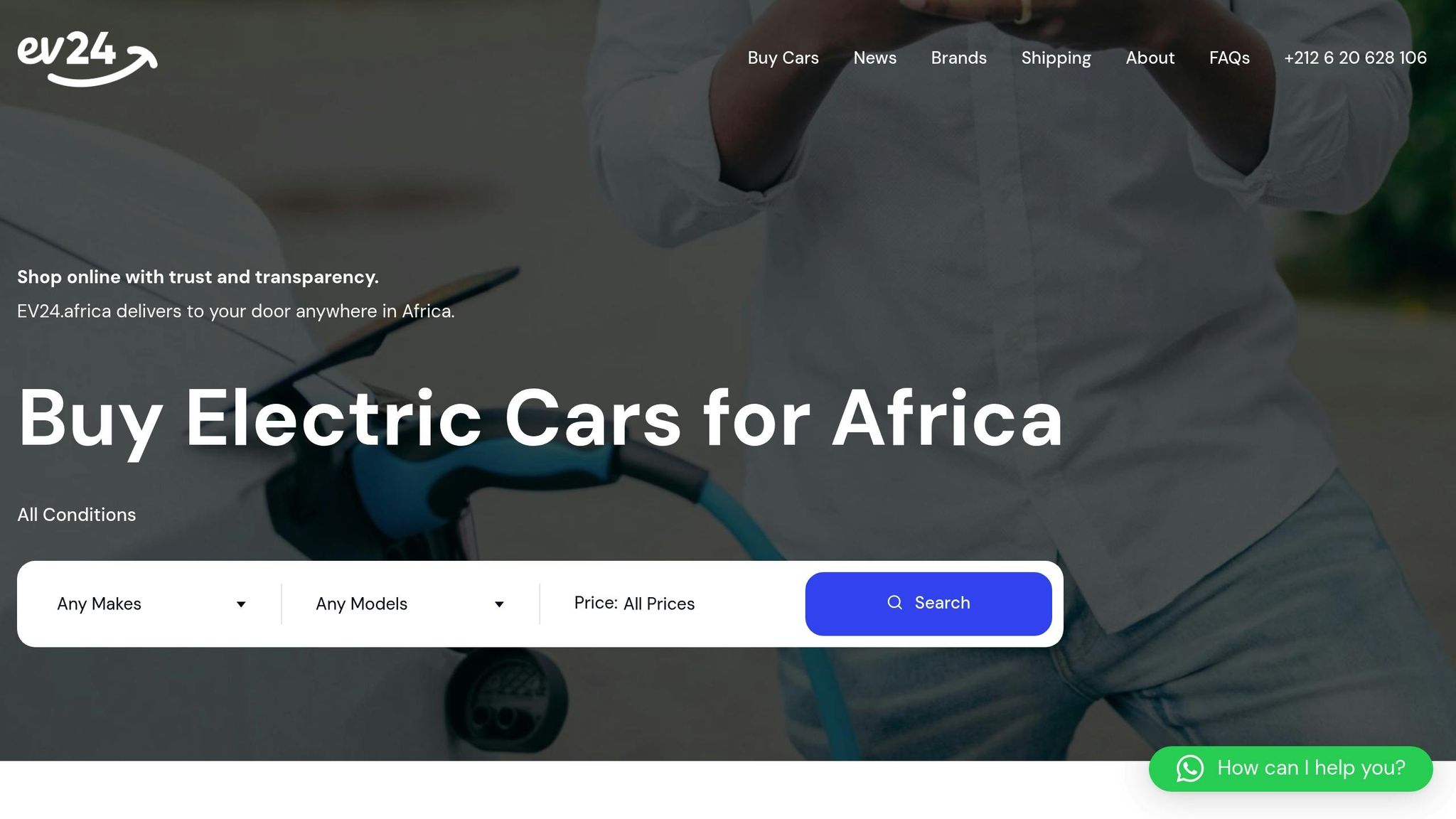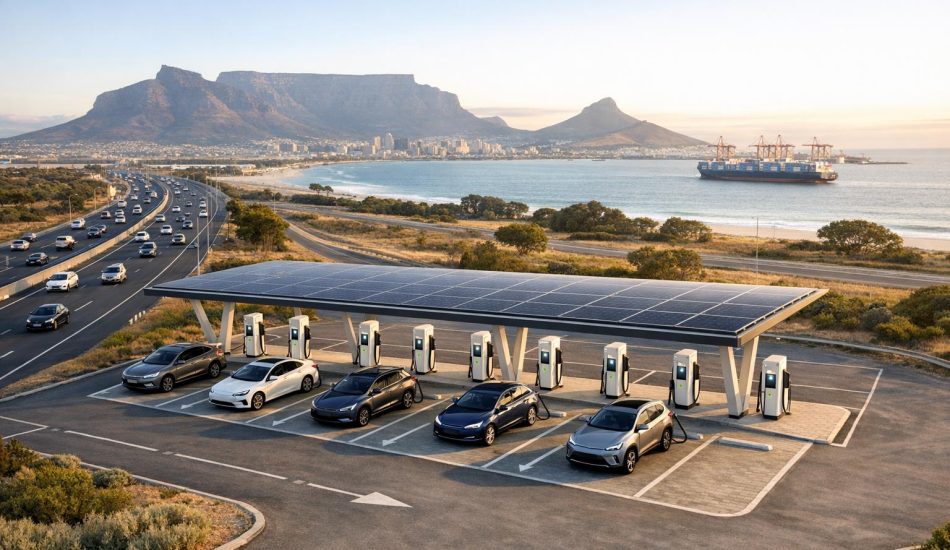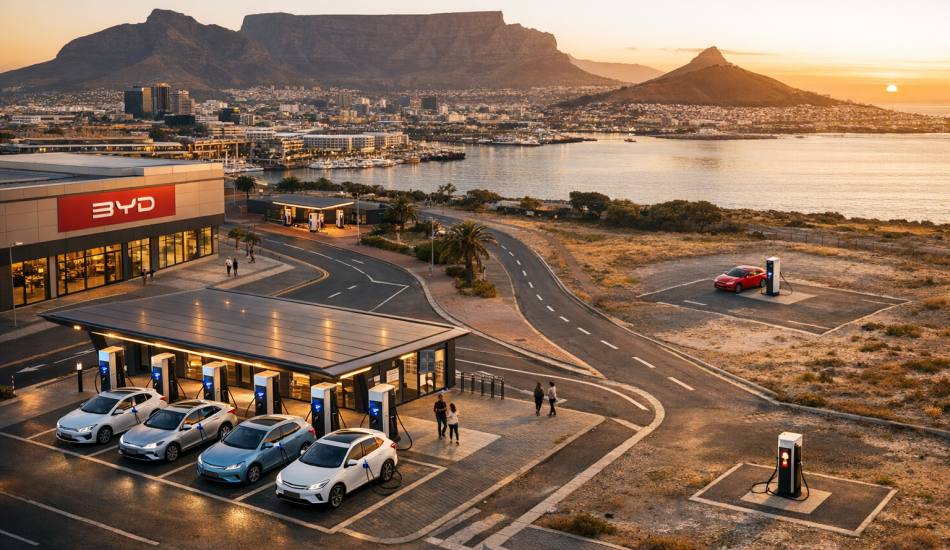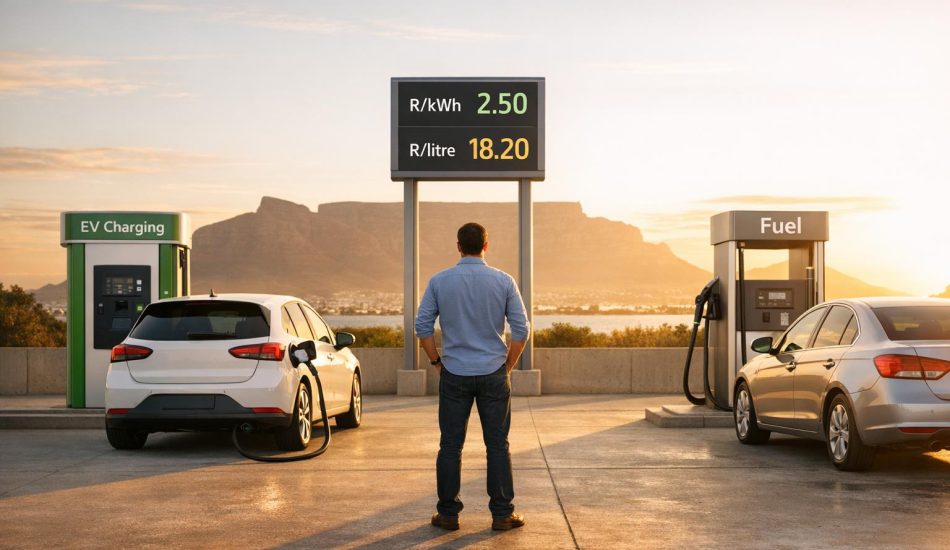
The Republic of the Congo has introduced updated 2025 guidelines for importing electric vehicles (EVs). These changes simplify the process and reduce costs, encouraging cleaner transportation options. Key highlights include:
- Tax Exemptions: Fully electric vehicles qualify for 0% VAT and customs duties.
- Simplified Procedures: Less documentation and faster customs clearance.
- Mandatory Pre-Shipment Inspection: Required for EVs valued over $2,500, handled by Bureau Veritas (BIVAC).
- Customs and Registration: Streamlined through SYDONIA software at the Port of Matadi.
- Shipping Options: RoRo, container shipping, and air freight available, with costs ranging from $900 to $16,000.
EV importers can benefit from significant cost savings compared to gasoline vehicles, thanks to waived taxes. Platforms like EV24.africa offer end-to-end services, from sourcing to delivery, making the import process easier.
Pro Tip: Ensure all documents are in French and verify EV certification for tax exemptions.
2025 EV Import Rules Overview
The Republic of the Congo has rolled out major updates to its electric vehicle (EV) import regulations for 2025, signaling a push toward greener transportation. According to the Ministry of the Economy, these reforms include tax exemptions and gradual reductions in import duties for traditional, hybrid, and electric vehicles. Fully electric vehicles, in particular, now enjoy complete exemptions from both VAT and customs duties. Alongside these financial breaks, the government has simplified customs procedures, making it easier for businesses and individuals to bring EVs into the country.
New Rules and Updates
The revamped framework is designed to encourage EV adoption through financial perks and reduced bureaucracy. Highlights include fewer documentation requirements and faster customs clearance for EV imports, offering a more efficient process for importers.
Import Restrictions
While the new rules make EV imports more appealing, the government has tightened restrictions on certain mineral exports. Specifically, cobalt exports face extended limitations aimed at stabilizing market prices. The Authority for the Regulation and Control of Strategic Mineral Substances’ Markets (ARECOMS) explained:
"The decision has been taken to extend the temporary suspension due to the continued high level of stock on the market".
Initially introduced in February 2025, the cobalt export ban was extended by three months. This move addresses an oversupply issue that had caused cobalt prices to plummet to a nine-year low of $10.00 per pound earlier in the year. Since then, the European spot price has rebounded to about $17.50 per pound as of July 10, 2025, marking a roughly 50% increase since the start of the year.
Complete EV Import Process
The updated 2025 guidelines have simplified the process of importing electric vehicles (EVs) into the Republic of the Congo, aligning with the tax incentives now in place. Here’s a step-by-step overview of the key requirements for documentation, inspections, and customs clearance.
Documents You Need
Getting your paperwork in order is the first step. Accurate documentation is critical for clearing customs and registering your EV.
Start with the bill of lading and commercial invoice, which must accompany all imported goods. The commercial invoice should include detailed information about the vehicle, such as its specifications, purchase price, and seller details. Make sure all documents are prepared in French.
Other essential documents include:
- Packing lists
- Air waybill (if shipped by air)
- Import license
- Pro forma invoice
- Insurance certificate
- Certificate of origin
The import license is particularly important. You can obtain it from an authorized commercial bank using your pro forma invoice.
For EVs specifically, additional documents are required, such as the vehicle’s registration from its country of origin and manufacturer certificates verifying its electric powertrain. These documents confirm the EV’s eligibility for full VAT and customs duty exemptions.
Once your documents are ready, you’ll need to proceed with the mandatory pre-shipment inspection.
Pre-Shipment Inspection
If your EV is valued at $2,500 or more, a pre-shipment inspection is mandatory. Given that most EVs exceed this value, this step is essential before shipping.
The inspection is conducted by Bureau Veritas (BIVAC), the authorized agency for pre-shipment inspections. To initiate the process, submit your import license to BIVAC. They will assign a code number and send it to their office in the exporting country.
During the inspection, BIVAC evaluates the vehicle’s quality, quantity, price, and adherence to international standards, ensuring everything matches the details on your pro forma invoice. For EVs, this includes verifying battery specifications, charging systems, and safety features.
Once the inspection is complete, BIVAC issues a Verification Certificate (AV), which is required for customs clearance. This certificate contains key details such as the supplier’s invoice number, bill of lading number, container numbers, import license number, and vehicle quantity.
Inspection fees are based on the Free on Board (FOB) value of the vehicle. The resulting certification determines the CIF (Cost, Insurance, and Freight) value, which customs authorities cannot alter after validation.
With the inspection complete, you can move on to customs clearance and registration.
Customs and Registration
Once your EV arrives at the Port of Matadi, the customs clearance process begins. The port uses SYDONIA, a software system aligned with ASYCUDA WORLD standards, to handle high-volume clearances efficiently.
Customs officials will review your documents, including the bill of lading, commercial invoice, and the BIVAC verification certificate. After clearing customs, you’ll need to register your vehicle for road use. This involves submitting your customs clearance documents, proof of insurance, and vehicle specifications to the appropriate transportation authority.
For a hassle-free experience, EV24.africa offers end-to-end import services. They handle everything – from sourcing and shipping to customs clearance and registration – ensuring your EV complies with all local regulations. Their services cover all 54 African countries, making the process straightforward and efficient.
EV Import Taxes and Fees
If you’re importing an electric vehicle (EV), understanding the taxes and fees involved is essential to calculating the total cost. The 2025 guidelines outline several key aspects of import taxation that can significantly affect the overall expense.
Import Taxes and Duties
Congo applies tariffs based on a vehicle’s CIF (Cost, Insurance, and Freight) value. These tariffs include:
- 5% for raw materials and equipment
- 10% for industrial inputs
- 20% for finished goods
For vehicles, the customs tax ranges from 8% to 46.1%, plus the standard VAT (Value Added Tax). On top of this, there’s an additional 15% excise duty to account for. Importers also face integration taxes and other fees. The Congolese Office of Standards (OCC) imposes a 2% tax on the CIF value of imports exceeding $2,500, along with an extra charge of $5.00 per ton of goods. These standard charges establish a baseline for comparing the incentives offered to EVs.
EV Tax Benefits
To encourage the adoption of clean transportation, Congo is updating its tax policies to provide financial relief for fully electric vehicles. Certified EVs may qualify for reduced or even exempted import duties and VAT. However, to take advantage of these benefits, importers must ensure their vehicles are fully certified as electric during the pre-shipment inspection process.
EV vs Gas Car Tax Comparison
Here’s a breakdown of how taxes for certified electric vehicles stack up against those for gasoline-powered cars:
| Tax Component | Fully Electric Vehicles | Gasoline Vehicles |
|---|---|---|
| Customs Duties | 0% (potential exemption) | 8% – 46.1% |
| Value Added Tax (VAT) | 0% (potential exemption) | 16% |
| Excise Duty | 0% (potential exemption) | 15% |
| OCC Fee | 2% of CIF + $5.00/ton | 2% of CIF + $5.00/ton |
| Additional Entry Taxes | Standard rates apply | Standard rates apply |
Even with potential exemptions, importers will still need to cover the OCC fee and any additional integration taxes.
As analysts project that EVs could account for up to 25% of new vehicle purchases by 2025, these evolving tax policies could play a key role in driving the growth of clean transportation in the region.
Import Tips and EV24.africa Support

Bringing an electric vehicle (EV) into the Republic of the Congo can be a smooth process if you follow the right steps and use professional services. With the 2025 tax incentives on the horizon, it’s important to get everything right to enjoy the full benefits.
Shipping and Delivery
Preparing your EV for shipping is crucial to avoid any hiccups along the way. Here’s how to get it right:
- Make sure your vehicle is spotless and remove any personal belongings.
- Lower the battery charge to a level deemed safe for transport.
- Secure the battery properly to prevent damage during transit.
- Take clear photos of your EV from multiple angles before shipping.
- Fill out all shipping and customs forms with precision.
- Confirm that your insurance covers international shipping risks.
When choosing a shipping method, you have several options. Container shipping ranges from $1,000 to $3,500 and allows you to include additional items. Roll-on/Roll-off (RoRo) shipping is more affordable, typically costing $900 to $2,000. If time is critical, air freight is the fastest but also the most expensive option, priced between $8,000 and $16,000. Used EVs and hybrids must be shipped in Hazmat containers due to the safety requirements for lithium-ion batteries. Make sure your shipping provider complies with the International Maritime Dangerous Goods (IMDG) Code, which outlines specific guidelines for transporting these batteries.
To minimize transit times, select ports with direct shipping routes and consider seasonal factors that could impact schedules.
Financing and Finding EVs
Once your EV is on its way, it’s time to focus on financing and selecting the perfect model. This is where EV24.africa comes in, offering a streamlined platform to help you source and finance electric vehicles for import to the Republic of the Congo. They provide clear pricing with no hidden fees, making it easier to manage your budget. Whether you’re looking for something affordable like the GEELY PANDA MINI BASE at $5,880 or a premium option like the VOYAH DREAMER EV at $97,000, EV24.africa has you covered.
The platform also offers flexible payment plans and helps coordinate financing, a vital service when dealing with international transactions and the complexities of customs and shipping schedules. With access to vehicles from Europe, Asia, North America, and Japan, EV24.africa gives you a wide range of choices from top brands. Their straightforward pricing structure makes comparing options and finding the right fit for your budget a breeze.
Why Use EV24.africa
EV24.africa goes beyond just sourcing and financing. They provide comprehensive support throughout the import process, including delivery through the Port of Pointe-Noire and assistance with customs clearance. Flexible Incoterms like DDP (Delivered Duty Paid) and FOB (Free on Board) give you the option to handle customs yourself or let EV24.africa manage everything for you.
With a team of over 200 professionals operating across five African countries, EV24.africa offers expert guidance on customs, registration, and import taxes.
"We make importing and buying electric vehicles (EVs) easy, handling everything from sourcing to shipping and delivery in all 54 African countries."
Their end-to-end service includes real-time tracking, so you can stay updated on your vehicle’s journey. EV24.africa works with global logistics providers, customs agents, and port authorities to ensure every step is seamless. Their delivery network spans all 54 African nations, with tailored solutions for Congolese customers. Whether you prefer RoRo or container shipping, EV24.africa offers options to suit your schedule and budget.
sbb-itb-99e19e3
Compliance and Future Changes
Navigating compliance means not only adhering to current rules but also preparing for upcoming shifts. The Republic of the Congo is aligning its import requirements with evolving regional standards, which will directly impact electric vehicle (EV) import procedures. This section highlights these anticipated changes and how they could influence your import strategy.
Changing Emission Standards
The Republic of the Congo is working toward adopting the East African Community (EAC) harmonized standards for vehicle emissions and fuel quality. As of 2022, the EAC established minimum Euro 4/IV standards for both new and imported used vehicles, alongside setting a low sulfur fuel limit of 50 parts per million (ppm) for diesel and gasoline. Although EVs produce zero tailpipe emissions, importers must ensure their documentation aligns with these updated requirements. The government is prioritizing these standards under its regional treaty obligations and is actively training officials to enforce compliance. These regulatory changes underscore a broader focus on improving air quality and addressing public health concerns across the region.
Future Policy and Incentive Changes
Looking ahead, upcoming policy changes are likely to reshape the costs and processes involved in EV imports. The Republic of the Congo is committed to transitioning to a low-carbon economy and aims to position itself as an emerging economy by 2030. As part of its climate goals, the country has pledged to reduce greenhouse gas emissions by 21% by 2030, although much of this reduction depends on international support. Measures under consideration include introducing a carbon tax and establishing a regulatory authority to oversee carbon markets.
Globally, about 70% of heavy-duty vehicle sales are now influenced by EV policies. Many nations are also investing heavily in electric vehicle supply equipment (EVSE) to address infrastructure gaps. In this context, the Republic of the Congo may soon introduce import policies that tie incentives to charging infrastructure development or require importers to contribute to national charging networks. International collaborations are also shaping the policy landscape. For example, in January 2023, the U.S. signed a memorandum with the Democratic Republic of the Congo and Zambia to support a robust supply chain for EV production, from mining to assembly.
The Australian Institute of International Affairs emphasizes the urgency of these issues:
"Africa must respond urgently, credibly, and comprehensively to the socio-environmental burdens posed by the shifting geographies, trajectories, and composition of vehicle imports."
Staying informed about government updates on EAC standards and climate policies will be critical. With regulations increasingly favoring clean vehicle imports, now is the time to refine your EV import strategy. By planning ahead, you can ensure compliance while taking advantage of emerging incentives and opportunities.
Conclusion
Bringing electric vehicles (EVs) into the Republic of the Congo in 2025 involves understanding updated regulations, completing necessary inspections and paperwork, and handling customs clearance. These processes are designed to simplify imports and offer both financial and operational benefits. Over their lifetimes, EVs can save owners between $6,000 and $12,000, with annual fuel expenses nearly three times lower than those of gasoline-powered vehicles. Additionally, EVs typically require 31–50% less maintenance than traditional vehicles.
EV24.africa simplifies the entire import process – from sourcing to delivery – while ensuring compliance and smooth customs procedures. The platform offers a wide range of EVs sourced from Europe, Asia, North America, and Japan, complete with detailed specifications and transparent pricing. Whether you prefer door-to-door or port-to-port delivery, EV24.africa’s services remove the hassle of navigating the import process on your own.
As the Republic of the Congo aligns with regional emission standards and strengthens its climate policies, platforms like EV24.africa make it easier to embrace clean transportation. By choosing to import EVs through a trusted service, buyers not only stay ahead of regulatory changes but also support the nation’s move toward more sustainable transportation. With cost savings, regulatory alignment, and simplified logistics, importing EVs becomes a smart and forward-thinking choice for Congolese buyers.
FAQs
What are the steps and documents needed to import an electric vehicle into the Republic of the Congo in 2025?
How to Import an Electric Vehicle into the Republic of the Congo in 2025
If you’re planning to bring an electric vehicle into the Republic of the Congo in 2025, here’s a quick guide to help you navigate the process:
- Get Import Approval: Start by securing the necessary approval from customs authorities.
- Gather the Essential Documents: You’ll need to prepare several key documents, such as:
- A bill of lading
- The invoice for the vehicle
- An import declaration
- Proof that the vehicle meets regulatory standards
- Handle Customs Clearance: Ensure all required fees and taxes are paid, and complete the customs clearance process.
Typically, you’ll also need documents like proof of ownership, detailed vehicle specifications, and compliance certificates. Since specific requirements can vary, make sure to double-check with local authorities to avoid any surprises during the process.
What tax benefits are available for importing electric vehicles in the Republic of the Congo compared to gasoline vehicles?
The Republic of the Congo has introduced complete exemptions from customs duties and VAT for importing electric vehicles (EVs). This initiative is part of the country’s push toward greener transportation options. On the other hand, gasoline-powered vehicles face import duties ranging from 5% to 30%, with luxury cars and SUVs being taxed at the higher end of the scale. These tax breaks make EVs a more budget-friendly choice for importers aiming to reduce costs while contributing to eco-conscious mobility efforts.
How does EV24.africa make importing electric vehicles to the Republic of the Congo easier?
EV24.africa makes importing electric vehicles into the Republic of the Congo effortless with its easy-to-use platform. It walks buyers through each step of the process, from understanding the necessary paperwork to handling customs procedures, ensuring everything runs smoothly.
The platform also provides helpful information on local rules, tax breaks, and potential exemptions, saving both individuals and businesses time while minimizing hassles.




